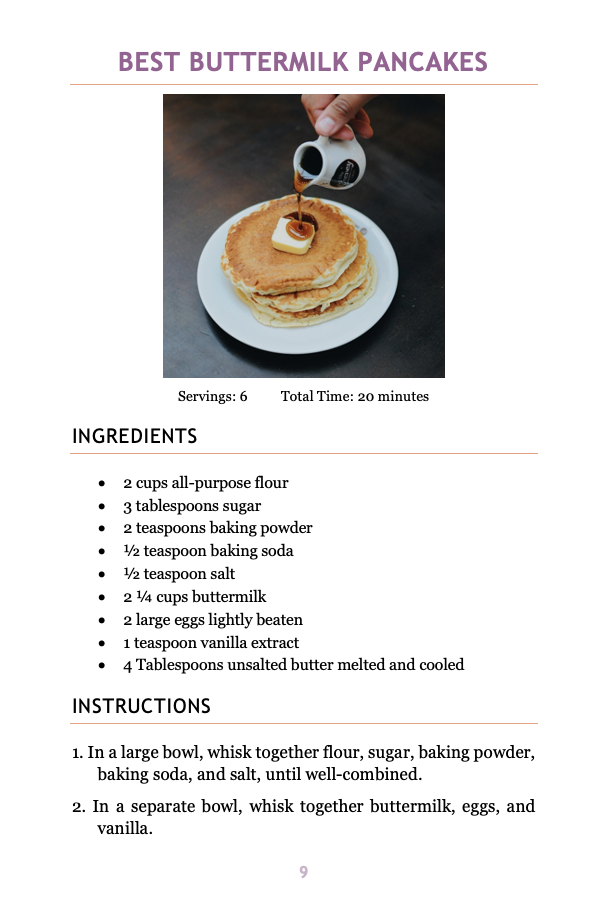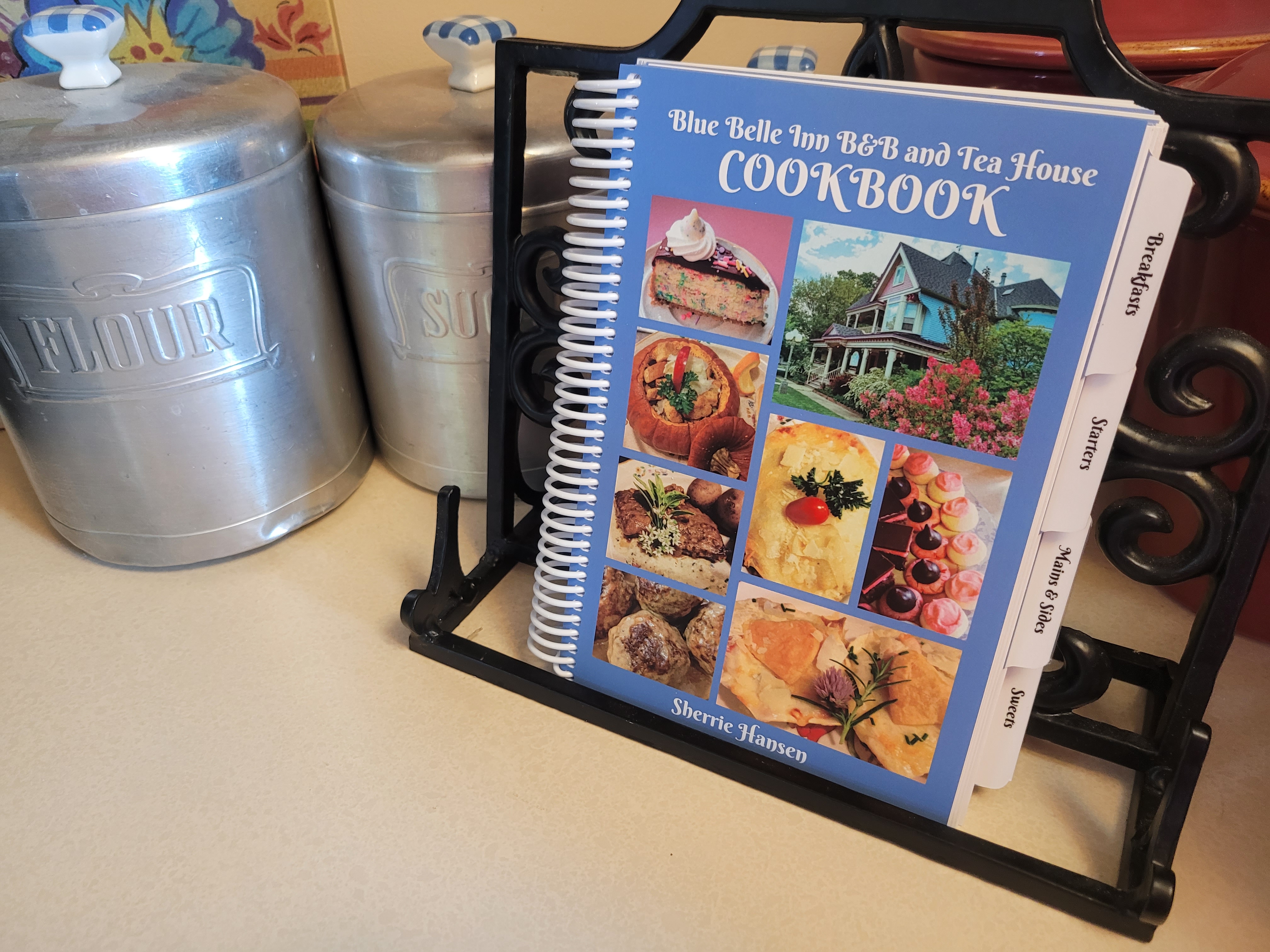Writing and formatting a cookbook just got easier with 48 Hour Books! We have provided several key steps to ensure your cookbook is well-organized, engaging, and useful for readers. Whether you want to print a cookbook to sell in stores or simply share family recipes with loved ones as a keepsake, learn how 48 Hour Books can help you throughout the process with book printing customizations and formatting templates.
Creating a well-formatted cookbook involves organizing content to be both visually appealing and easy to follow. Here’s a step-by-step guide:
1. Decide on Your Structure
· Table of Contents: Start with a list of sections, making it easy for readers to navigate.
· Sections/Categories: Group recipes by category, such as appetizers, soups, main courses, desserts, etc.
· Recipes: Each recipe should have a consistent layout with key elements
*Add divider tabs to your cookbook for easy navigation and a professional look!
2. Recipe Layout
Each recipe should include:
· Title: Use a large, clear font.
· Brief Introduction: A short description or story about the dish.
· Ingredients List:
o Organize by order of use.
o Use bullet points or columns for readability.
o Include precise measurements.
· Instructions:
o Number each step for clarity.
o Keep each step concise and action-oriented (e.g., “Chop onions finely”).
o Use bold or italic text for key actions (e.g., “Boil for 5 minutes”).
· Additional Information:
o Prep Time and Cook Time
o Serving Size
o Difficulty Level
o Special Notes (e.g., variations, dietary adjustments)
3. Add Visual Elements
· Photos: Use high-quality images for each recipe or section opener.
· Icons: Consider icons for dietary tags (vegan, gluten-free) and kitchen tools.
· Spacing: Leave white space around text for easy readability.
· Headings and Subheadings: Consistent headings for each section and recipe help readers navigate.
4. Additional Sections
· Introduction: Brief background about the author or theme of the cookbook.
· Tips & Techniques: Cooking tips, ingredient substitutions, or essential techniques.
· Glossary: A glossary for unusual terms or ingredients is helpful.
· Index: An alphabetical list of recipes or ingredients for quick lookup.
5. Consistency in Fonts and Colors
· Choose fonts that are legible and cohesive with the cookbook’s style.
· Use a color scheme that complements the theme (e.g., rustic, modern).
6. Proofreading and Testing
· Double-check recipes for clarity, accuracy, and grammar.
· Ensure that every recipe has been tested to confirm it works as written.
7. Final Touches
· Include author bio and dedication, if desired.
· Add a measurement conversion table if your audience might benefit from it.
Cookbook Templates from 48 Hour Books
48 Hour Books is here to help print your cookbook and support you throughout the process. If you need more help with formatting your cookbook, 48 Hour Books has created a cookbook template that includes content recommendations, a pre-set table of contents, and recipe formatting. We’ve done the heavy lifting, so all you have to do is replace the template photos and recipe ingredients and instructions with your own! Here’s a quick glimpse of one of our cookbook templates pages:

Download your Free Cookbook Template
To download, scroll down to the FAQ section and click on the "Can I get help formatting my custom recipe book?" arrow.
We also recommend the following print materials for cookbooks:
· Spiral Coil Binding: This will ensure your cookbook will lay flat on the counter while cooking.
· Divider tabs: For easy navigation
· Thicker paper stock: For durability, we recommend our 80# or 100# Silk Text paper. This paper is ideal for books with images and color photos.

This “recipe” should give you a well-rounded approach to creating a cookbook that’s visually appealing and easy to use. Ready to print your cookbook with 48 Hour Books? Contact us today to get started!
Subscribe to the 48 Hour Books Newsletter for more self-publishing tricks and tips, author spotlights, notices about upcoming deals, and more!